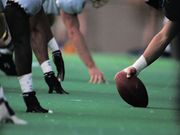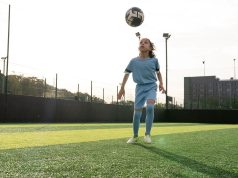High level of agreement between remote and face-to-face providers with regard to examination findings
MONDAY, May 1, 2017 (HealthDay News) — Teleconcussion assessment with a remote neurologist assessing football players using a telemedicine robot is feasible for sideline concussion assessments, with high levels of agreement with face-to-face providers, according to a study published online March 24 in Neurology.
Bert B. Vargas, M.D., from the University of Texas Southwestern Medical Center in Dallas, and colleagues assessed a cohort of 11 consecutive male collegiate football players with suspected concussion using Standardized Assessment of Concussion (SAC), King-Devick test (K-D), and modified Balance Error Scoring System (mBESS). Each athlete was assessed by a remote neurologist using a telemedicine robot with real-time two-way audiovisual capabilities and by a sideline provider who performed a simultaneous face-to-face assessment. A remove-from-play (RFP) determination was made after the assessment. SAC and mBESS scores were obtained for six of the 11 athletes.
The researchers found that in all six cases assessed, the teleconcussion and face-to-face SAC were in agreement. There was a mean difference of 0.7 seconds between remote and sideline K-D times. In all 11 cases, remote and sideline K-D were within a 3-second difference. In all six cases assessed, remote and sideline mBESS scores were within 3 points. In all 11 cases, RFP decisions were in agreement.
“These data suggest a high level of agreement between remote and face-to-face providers with regard to examination findings and RFP determinations,” the authors write.
One author disclosed financial ties to the pharmaceutical industry.
Copyright © 2017 HealthDay. All rights reserved.








